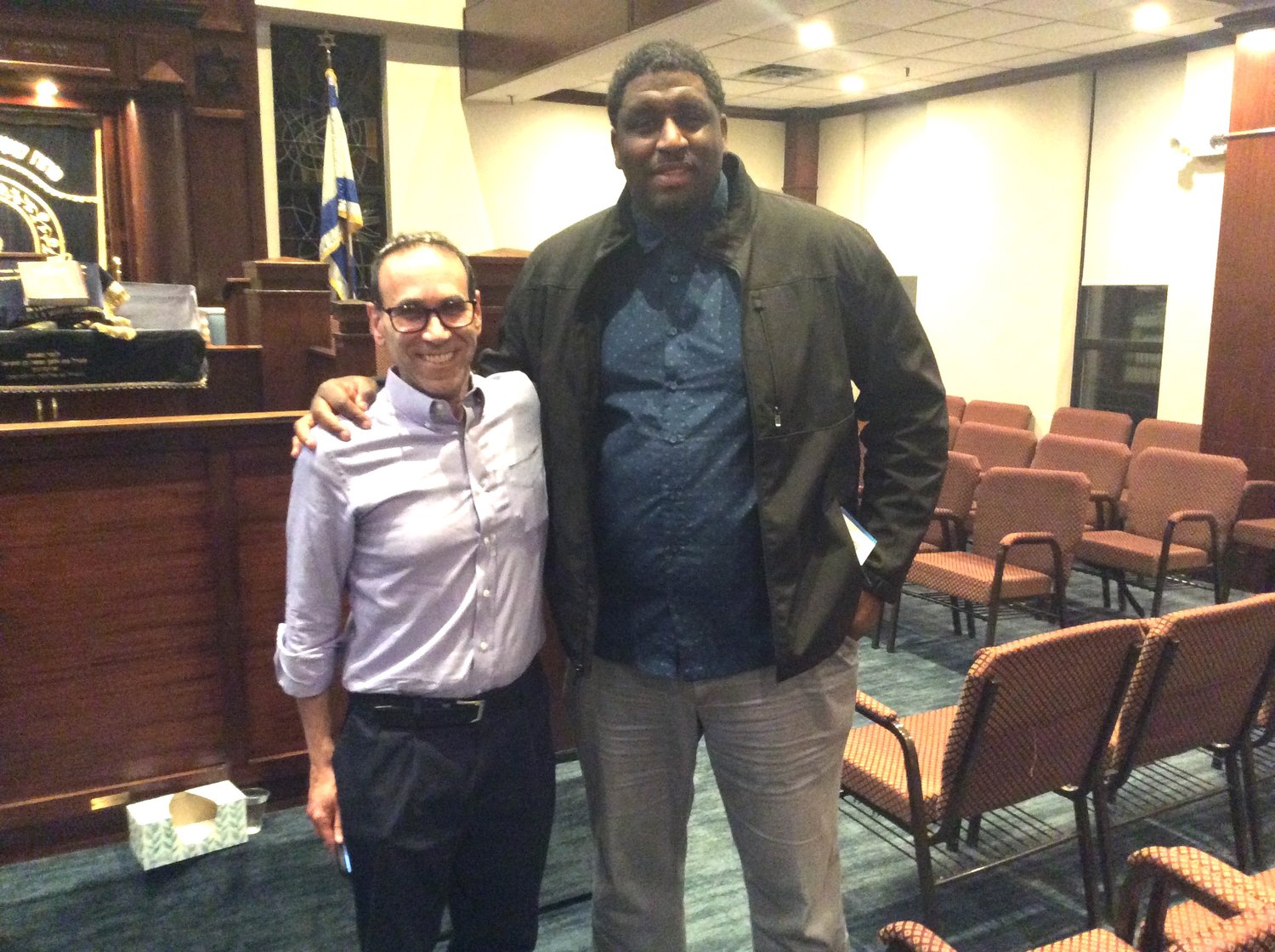Discussing mental health in Woodmere with Mike Sweetney
One of the best high school basketball players of his time, former NBA player Mike Sweetney has since taken on the role of a mental health advocate and hopes he can make a lasting impact on people’s lives.
Sweetney, 40, spoke at Young Israel of North Woodmere on March 21 as a part of Nafshenu Alenu, a community-wide initiative created in partnership with the Marion & Aaron Gural JCC to address mental health needs.
Sweetney, selected by the Knicks, was the ninth overall pick in the 2003 NBA draft. His four-year NBA career was evenly split between the Knicks and the Chicago Bulls.
An assistant coach at Yeshiva University, he uses his experience as a mental health advocate to mentor young people by raising awareness about mental health issues, and the importance of seeking and receiving help.
Sweetney’s battle began when his father, Samuel, died from a heart attack two days before his first training camp with the Knicks. Sweetney’s father came to every one of his basketball games and was always supportive. The personal loss sent Sweetney into a depression that made it impossible for him to focus on basketball. He even tried to commit suicide during his rookie season.
His battle with depression ultimately contributed to his NBA career coming to an end and once he was out of the league, his problems only worsened.
“It was to the point that I had moved out of my house, and I was sleeping in parks and cars,” Sweetney said. “I’m at a park, in a parking garage, sitting in a car, thinking, how did I get here? I went from shaking David Stern’s hand to living in a park.”
For two months, he lived in parks and parking garages. Sweetney said because his life was relatively stable before his father died a lack of adversity made the loss especially difficult.
“My father was everything, that’s why it shook my world,” he said. “My wife was calling me every day to come home. I didn’t want to be seen, so I just tried to hide out.”
It took time for Sweetney, but the turning point was the news that his wife was pregnant with their first son.
“There was no way I could be that person for him and be an example for him,” he said.
Sweetney’s agent was able to find him offers to play basketball overseas. Though pregnant, his wife encouraged him to pursue the opportunity, to escape the negative sports publicity in the U.S. He ended up in Uruguay, where he not only played basketball but met a man named Juan, who changed the direction of his life.
“We spent all day together, meditating together and I finally accepted my father’s death,” Sweetney said. “I finally accepted not being in the NBA anymore.”
He faced a far more positive reception from sports fans when playing abroad, which helped get his mind back on track. Sweetney shared his story with media the U.S., and soon, his story went viral and he decided that he wanted to pursue helping others struggling with mental health.
“I thought everybody was going to laugh at me and give me a hard time, but I had so many people playing professional sports, and on TV thanking me for telling my story,” Sweetney said. “I thought, maybe this is my next calling.”
He began speaking at schools and then corporate events and started getting emails about how his story changed people’s lives.
“I finally found my purpose in life, and I was probably more at peace and happy to do what I do now than when I was in the NBA,” Sweetney said.






